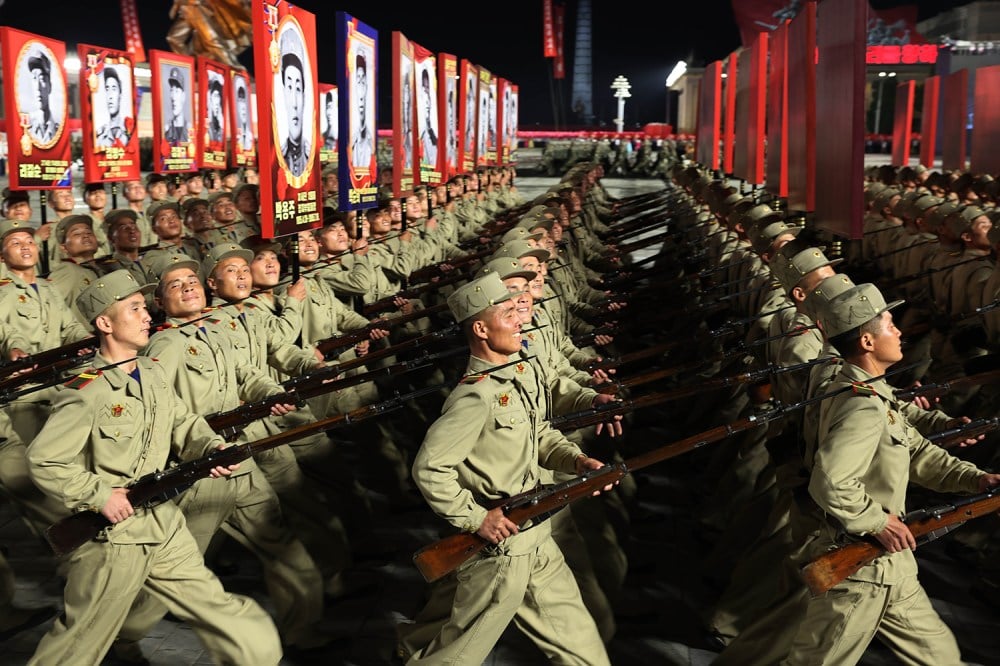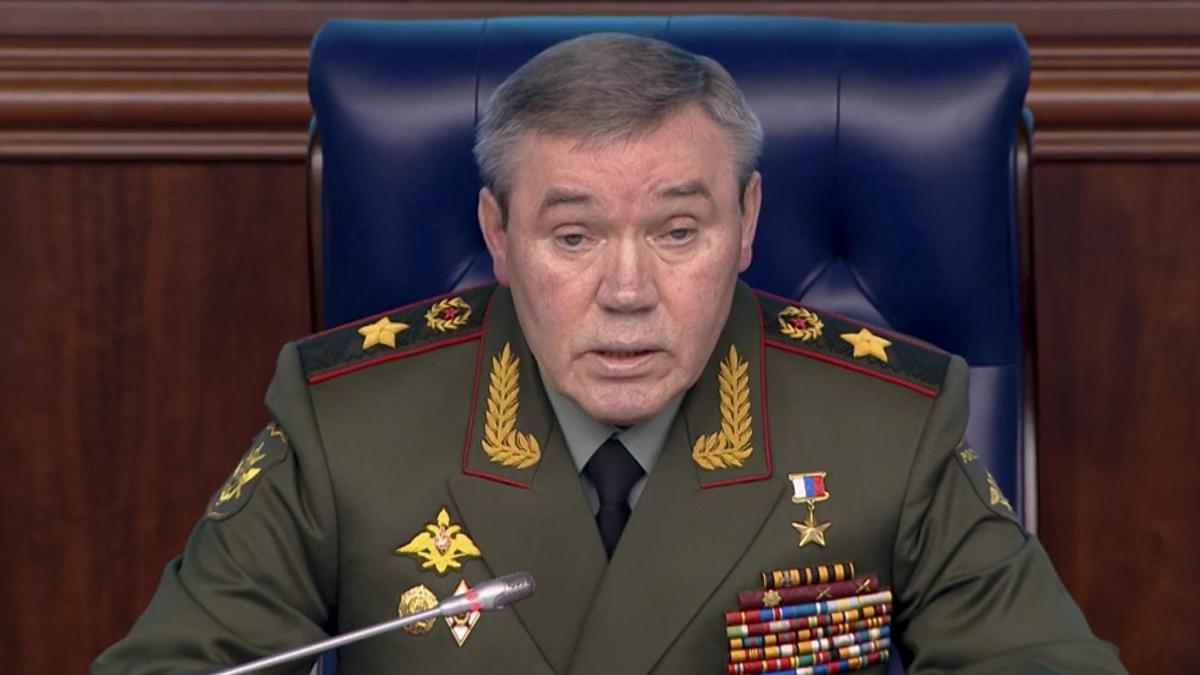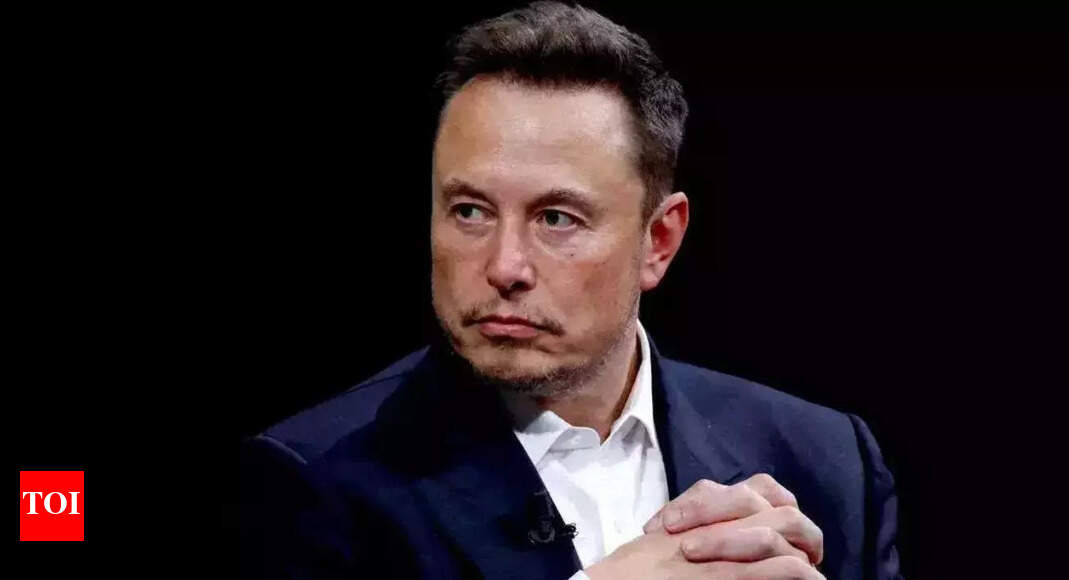The newest development in Russia’s war of conquest in Ukraine is North Korea’s provision of troops to the Kremlin. The U.S. government says that at least 10,000 North Korean soldiers have already been deployed to Russia’s Kursk region, part of which Ukrainian forces have occupied since the summer. On Monday, Ukraine confirmed the first encounters with North Korean troops at the front. While it is still unclear whether all the troops will join the fighting—and whether more soldiers will follow—the entry of North Korea into a European war undeniably marks a major escalation.
Yet the Biden administration has responded to this widening of the war by again signaling its own fear of escalation. Instead of lifting restrictions on the Ukrainians’ use of Western weapons, for example, the Pentagon merely announced that it is “increasingly concerned.” Asked whether Ukraine should strike back at North Korean troops, President Joe Biden responded, “If they cross into Ukraine, yes.” In effect, the White House thus signaled to the Kremlin that there will be no U.S. reaction if North Korean troops fight in Kursk—which will, in turn, free up Russian troops to be redeployed inside Ukraine, negating the effect of Ukraine’s summer offensive into Russia.
The newest development in Russia’s war of conquest in Ukraine is North Korea’s provision of troops to the Kremlin. The U.S. government says that at least 10,000 North Korean soldiers have already been deployed to Russia’s Kursk region, part of which Ukrainian forces have occupied since the summer. On Monday, Ukraine confirmed the first encounters with North Korean troops at the front. While it is still unclear whether all the troops will join the fighting—and whether more soldiers will follow—the entry of North Korea into a European war undeniably marks a major escalation.
Yet the Biden administration has responded to this widening of the war by again signaling its own fear of escalation. Instead of lifting restrictions on the Ukrainians’ use of Western weapons, for example, the Pentagon merely announced that it is “increasingly concerned.” Asked whether Ukraine should strike back at North Korean troops, President Joe Biden responded, “If they cross into Ukraine, yes.” In effect, the White House thus signaled to the Kremlin that there will be no U.S. reaction if North Korean troops fight in Kursk—which will, in turn, free up Russian troops to be redeployed inside Ukraine, negating the effect of Ukraine’s summer offensive into Russia.
Ukraine’s supporters have had many months to adapt to North Korea’s expansion of its support for Russia’s war. In June, Russian President Vladimir Putin went to Pyongyang to sign a “comprehensive strategic partnership” with North Korean leader Kim Jong Un—an alliance in all but name. Half of all artillery shells used by Russian forces in the war, as well as ballistic missiles, are now being supplied by North Korea, which has become the most important partner in Russia’s war effort by far, according to Ukrainian military intelligence chief Kyrylo Budanov. Reports of North Korean soldiers starting to arrive in Russia for training first appeared last month. The West could have used all this time to exacerbate the fragility of Russia’s capabilities made manifest by its reliance on North Korea, find ways to interdict deliveries, and help Ukraine strike harder against a weakened Russian military.
North Korean Foreign Minister Choe Son Hui now describes Russia’s invasion a “righteous holy war.” But we don’t yet know whether North Korea’s troops are much more than a token demonstration that Russia is not wholly isolated internationally—or whether they are the first gush in a pipeline of manpower to salvage Russian ranks, which were recently being depleted at the rate of around 1,000 casualties per day. We also don’t yet know what price North Korea exacted for its support. Was the market clearing rate just combat experience for North Korea’s forces, which have never seen actual combat? Or has Kim bargained his troops for a pipeline of technology that will assist in making North Korea’s nuclear weapons more precise and longer range, enabling targeting of the U.S.? According to South Korean intelligence assessments, the North is seeking experience, modernization, cash payments, and a reciprocal commitment by Russia to send its forces in case of war on the Korean Peninsula.
Still, there are reasons to believe North Korea’s move may not work out as the positive signal that Russia and North Korea evidently anticipate. First, Russia seeking foreign troops suggests that it is running short of its own soldiers to continue prosecuting the war. Russian casualties since the start of the full-scale invasion are estimated at more than 600,000, and the military has already resorted to forcible conversion of ordinary conscripts to contract soldiers in order to sustain the fiction of a volunteer-fought war. Putin fears implementing a general mobilization in order to avoid conscripting from Moscow and St. Petersburg, where the Russian elites reside and protests could actually rattle his rule. Buying acquiescence from the families of fallen soldiers already consumes 6 percent of Russia’s state budget, and only sharply higher salaries and signing bonuses have kept fresh recruits coming. That the Kremlin needs to rely on cheaper or more available foreign troops at least suggests the sand is running through the hourglass for Russia’s ability to continue prosecuting the war.
The second reason that the use of North Korean troops could prove problematic for Russia is that they could be a source of friction with China. Deepening cooperation between Moscow and Pyongyang may worry Beijing about its ability to control the latter for much more consequential issues in East Asia. China is already nervous about North Korea’s actions invoking closer U.S.-Japanese-South Korean cooperation, and North Korea moving beyond its borders will aggravate Chinese concern about its declining influence over North Korea. Russia advertised last month’s BRICS summit in Kazan, Russia, as its emergence from Western-enforced isolation, but at the summit, Chinese leader Xi Jinping cautioned against “adding fuel to the fire” and discouraged third-party involvement in Ukraine. It may be pablum intended to maintain Beijing’s image as somehow distant from the fray, but it could also indicate Chinese frustration as Russia seeks ways not to be China’s junior partner by choosing North Korea as an alternative to overreliance on China.
Nor was China alone in diluting Russia’s ambitions for using the BRICS meeting to demonstrate support for its war. The summit declaration included only a single reference to the war, emphasized principles of the United Nations charter, and applauded “relevant proposals of mediation.” Participating states also rejected Russia’s proposal for an alternative financial settlements mechanism that would circumvent Western sanctions.
A third reason North Korean troops entering the war on Russia’s side may prove Pyrrhic is that it has apparently prompted South Korea to consider sending military advisors and weapons to support Ukraine. South Korea’s military is first-rate: so disciplined, proficient, well-trained, and well-equipped that it would decisively win a conventional war against the North. Were South Korea to join the war on the Ukrainian side, the performance of both armies would reveal the weakness of the North Korean military, which would have repercussions back on the Korean Peninsula. Even if South Korea doesn’t send troops to aid Ukraine, it will certainly send intelligence operatives to evaluate the performance of North Korean forces, to the benefit of defense planning at home. Any weapons South Korea sends from its vast, modern arsenal may not be subject to the restrictions that the Biden administration has imposed.
A fourth reason the move may send a very different signal than intended is that North Korean troops could defect and embarrass the North Korean government. It would be a humiliation for North Korea to either experience defections or have to use force to prevent them. Should they fight beyond Kursk and cross into Ukraine, they will encounter, even in a war zone, Ukrainians that are well-fed and more prosperous than North Koreans—a disconcerting experience they will take home. While North Korean despotism is well entrenched, substantial numbers of people experiencing a different society could nonetheless pose longer-term problems for the regime’s domestic control.
A final reason North Korea’s move may prove self-defeating for Russia is that it increases pressure to eliminate restrictions the United States has imposed on Ukraine’s use of Western weapons. The Biden administration could well worry that Ukraine will run out of troops and lose the war, or be forced to negotiate a submission to Russia that would humiliate the wider West. The escalation of North Korean involvement on the Russian side could loosen restrictions on Western countries willing to expand their participation on Ukraine’s behalf. Poland is already agitating for NATO countries to shoot down Russian drones and missiles over Ukraine from within their own airspace. An escalation by Putin that was designed to intimidate Western assistance may ultimately contribute to expanding it.
As of today, however, the Biden administration is once again allowing the West to be cowed by Putin’s threats instead of making timely use of Russia’s faltering military and economic prospects. Biden is forcing the West to play its strong hand weakly by allowing Putin and Kim to escalate the war with no Western response. Instead, the West should confront Russia and North Korea with threats and actions of its own.


